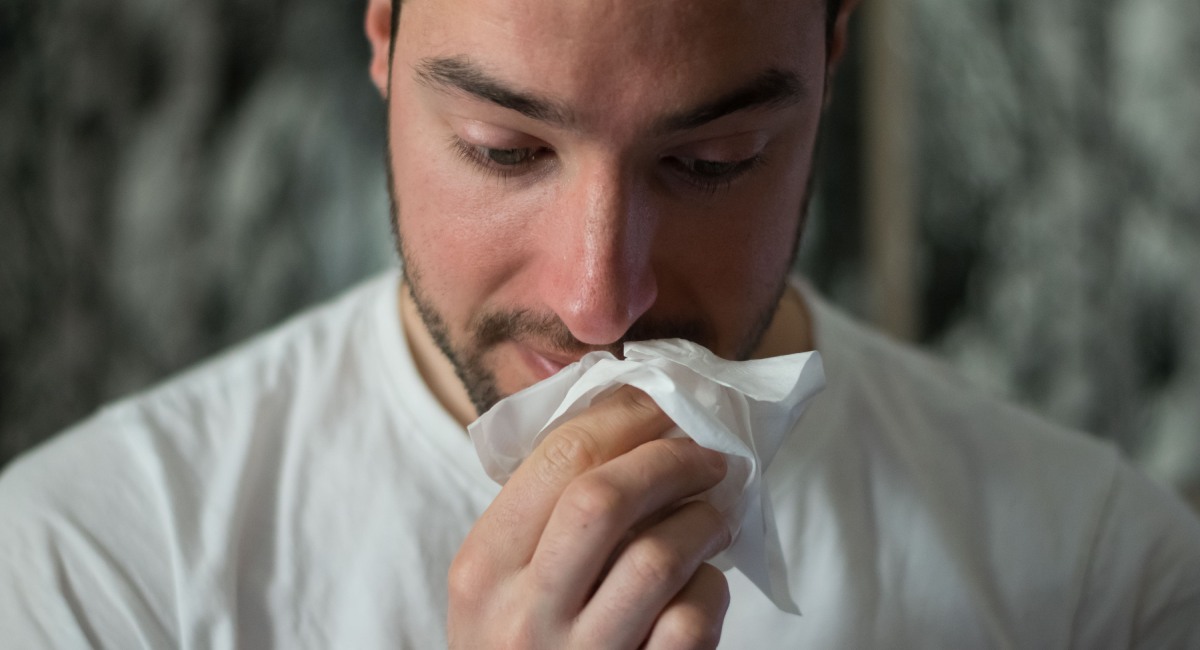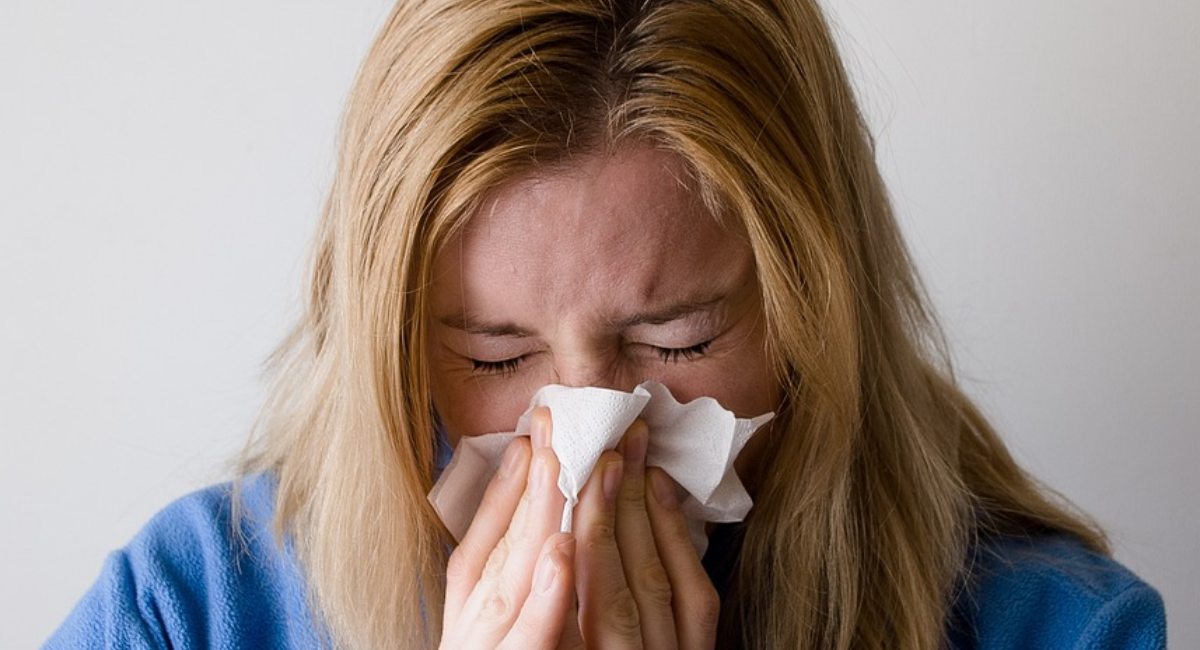The most important facts about flying with a cold
- Whether you should board the plane with mild cold symptoms such as a cold and headache depends on your actual state of health, the symptoms and your preparation for the flight.
- If you have extreme symptoms, especially a high fever or severe respiratory symptoms, you should postpone your trip.
- If you have a cold, you should prepare yourself due to the risk of infection for staff and other travelers and wear a mask in enclosed spaces, wash your hands regularly, keep your distance and observe coughing and sneezing etiquette.
- For your own well-being during your flight with a cold, use decongestant nasal sprays, drink plenty of fluids, take medication with you to relieve symptoms and take care of your body before, during and after the flight.
Did you have a flight delay or cancellation? Check your rights now and increase your chances of compensation
The flight is booked, the accommodation is reserved and the suitcases are packed – but then you feel a scratchy throat and a runny nose? That sounds like a cold. We clarify the question of whether you can start your journey like this and give you some important rules and helpful advice to help you reach your destination unharmed.
What is a cold?
A cold, also known as a flu-like infection, is a common viral infection of the upper respiratory tract. It is usually caused by different types of viruses. The typical symptoms are a runny or blocked nose, sore throat, mild headache and aching limbs and occasionally a slight fever.
Can you fly if you have a cold?
A common question travelers ask is – there is no clear yes or no answer. You should assess your own health to make an informed decision before you travel.
Can you fly with cold symptoms?
In principle, it is possible to fly with mild cold symptoms. However, typical symptoms such as a blocked nose or earache will make the flight more uncomfortable. The difference in pressure in the aircraft cabin often exacerbates these symptoms and causes additional discomfort.
Under what circumstances are you not allowed to fly?
If you have extremely pronounced cold symptoms, which are more indicative of flu or bronchitis, it is advisable to postpone your trip in order to spare yourself and avoid infecting others. You should also avoid flying on vacation if you have a serious illness such as chickenpox or measles.
What symptoms mean you should not fly?
Extreme symptoms of illness indicate that you should avoid flying. These include severe fever and respiratory symptoms, severe headaches and persistent nausea, as well as general malaise. These are just some of the symptoms that mean you should be in bed and not on an airplane.
Are you having trouble with a cancellation or flight delay and don’t want to accept it without doing anything? You shouldn’t either. After all, you are entitled to compensation in many cases of delay or cancellation.
Flight delay compensation, flight cancellation compensation
Compensation for overbooking
Compensation for denied boarding
Order Flightright conveniently online:
We enforce your refund and compensation!
With us, you can check your claims free of charge in two minutes. You can receive up to 600 euros compensation per person (minus the success commission).
When did the airline inform you of the flight cancellation or delay?
On the day of the flight or less than 14 days before or more than 14 days before departure.
Are you also affected by a missed connecting flight? Check your flight now. Simple ✔ fast ✔ & without risk ✔
To fly with a cold or not to fly?

The decision whether or not to board the plane depends on your state of health, the severity of your symptoms and the potential risk of infection for other travelers. To be on the safe side, you can seek medical advice before you travel.
Cancel a flight or fly with a cold?
This decision is a personal consideration between the urgency of the trip and your own well-being. If it is possible to cancel and the trip is not absolutely necessary, we advise you to postpone your trip to speed up your recovery.
What to do if you have to fly with a cold?
You have to take the booked flight at all costs and are asking yourself: What should you do if you have a cold and have to fly? Prepare yourself with the following measures to protect yourself and other air travelers.
Measures to protect yourself during the flight
- Wear a mask to minimize the risk of transmitting diseases.
- Wash your hands regularly with soap and water or use a disinfectant.
- Try to keep a certain distance from other air travelers.
- Cover your nose and mouth when sneezing and use the crook of your arm or a handkerchief instead of your hands.
- Try to choose a window seat, as this allows less contact with other passengers than an aisle seat.
- After landing, disinfect all surfaces such as armrests, tables and handles with disinfectant wipes.
Why can flying with a cold be dangerous?
You should be aware that there is a risk of infecting the flight crew and other travelers. For yourself, there is a risk that the typical cold symptoms will be exacerbated by the pressure differences during the flight. This will only delay your recovery and may even lead to a worsening of your state of health.
Tips for flying with a mild cold
- If you are still going to fly, it is best to follow these recommendations:
- Use decongestant nasal sprays to clear your sinuses and reduce the strain on your middle ear caused by the change in pressure.
- Drink plenty of water and avoid alcoholic beverages to stay hydrated and prevent dehydration of the mucous membranes.
- Take appropriate medication to alleviate the symptoms of a cold, such as painkillers for headaches and aching limbs.
- Try to rest during the flight and avoid excessive exertion so as not to put additional strain on your body.
- Ensure good hand hygiene by washing your hands regularly or using disinfectant.
Tips for equalizing pressure despite having a cold
The so-called Valsalva maneuver is often used to equalize pressure, in which you exert pressure on the sinuses by breathing out through the nose, but holding it closed and keeping your mouth closed at the same time.
However, it is not advisable to do this if you are ill, as the additional pressure on the sinuses can cause discomfort in the middle ear. It is better to follow our recommendations:
- Use decongestant nasal sprays.
- Chew several pieces of gum.
- Yawn or swallow regularly.
- Use special ear muffs.
FAQ: Flying with a cold
To put all your possible worries at ease, we answer other frequently asked questions about flying with a cold below.
Can children fly with a cold?
Children can usually fly too, but parents should take into account the severity of the symptoms. Be prepared for their discomfort to only get worse. Seek medical advice from your pediatrician or family doctor if necessary.
Why use nasal spray when flying?
Nasal sprays help to equalize the pressure in the ears by decongesting the mucous membranes and clearing the sinuses and ears.
Do earplugs help when flying?
Special earplugs or earmuffs help to equalize the pressure as they regulate the air circulation in the ear and reduce possible discomfort.
Can you fly with a cough?
You can fly by plane even if you have a slight cough. However, you should consider your own state of health and the risk of infection for other passengers. If you have a severe or persistent cough, it is advisable to seek medical advice and postpone your trip if necessary.
Can you fly with a cold?
You can normally fly with a mild cold. However, individual symptoms, pressure equalization and the potential risk of infection for other passengers must be taken into account.
Is flying with a cold dangerous?
As a rule, flying with a cold does not pose any direct dangers. However, the pressure differences in the aircraft cabin can cause unpleasant symptoms such as pain in the ear.
Can I fly with the flu?
It is recommended not to fly with flu, especially if the symptoms are severe or accompanied by a fever.
Conclusion on flying with a cold
Flying with a slight cold is possible, but requires consideration. Assess how ill you feel, the urgency of the trip and consider postponing if you have severe symptoms or serious health concerns. If you choose to fly, prepare to protect yourself and avoid infecting other passengers.
How can Flightright help you?
Are you stuck at the airport due to a flight delay? Your flight has been canceled or you have been removed from the passenger list (denied boarding)?
In each of the situations described, you as a passenger have a right to compensation.
According to the EU Passenger Rights Regulation, passengers are entitled to compensation in the event of a delay, cancellation, overbooking, or missed connection. You can claim up to 600 euros of compensation per person (minus commission fee). This compensation is independent of the ticket price. Flightright enforces your right for you. If necessary also in court.
Tip: Flightright helps you to enforce your passenger rights! With us, you can check your claims free of charge in two minutes. ✔️Easy, ✔️fast ✔️& without risk
As the market-leading consumer portal, Flightright fights for the enforcement of air passenger rights. We stand up for your rights in the event of a flight delay, cancellation or denied boarding and refer to the European Union’s Air Passenger Rights Regulation 261/2004. Flightright’s air passenger rights experts are also happy to help you with ticket refunds and refunds for canceled package tours.
As experts in the field of air passenger rights, we enforce your right to compensation against the airline!

